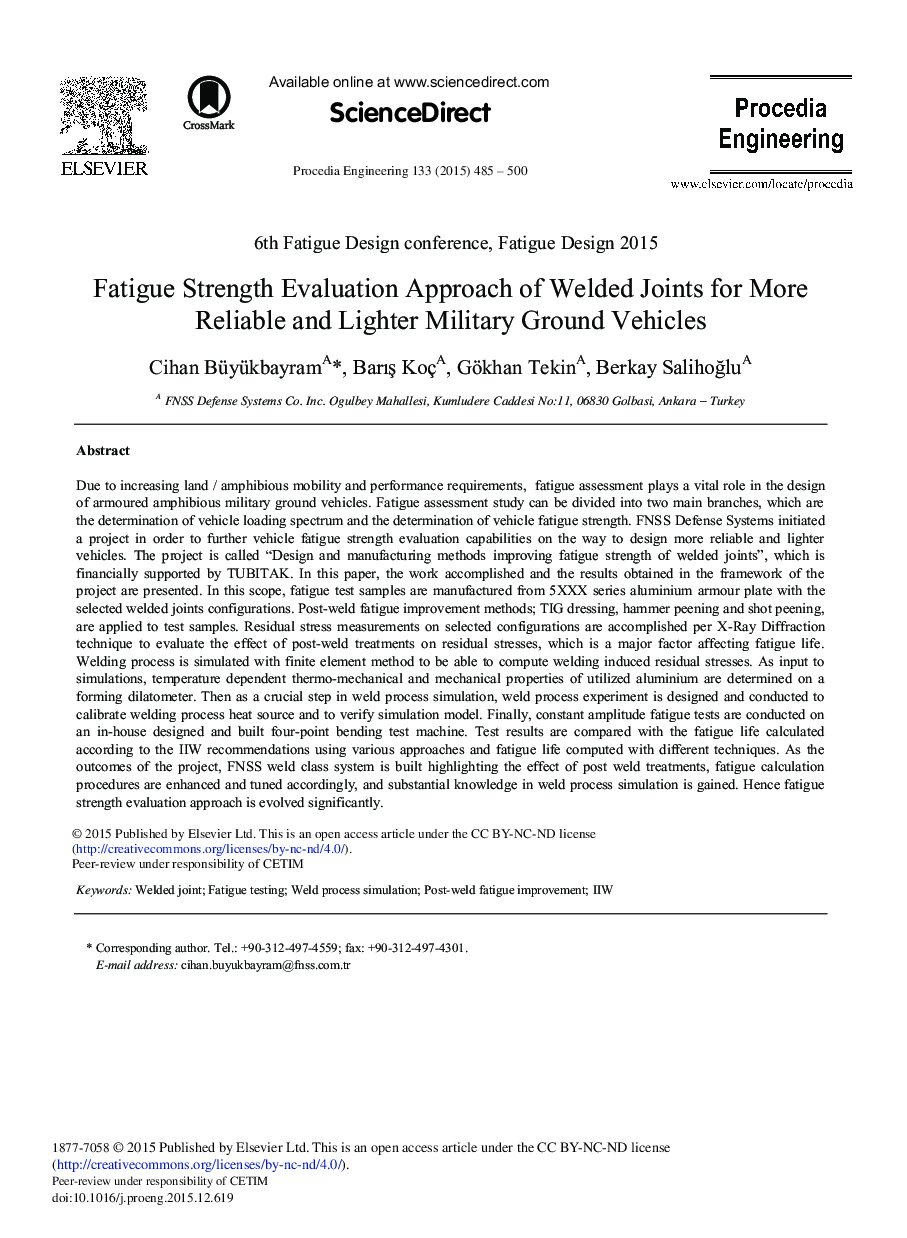| Article ID | Journal | Published Year | Pages | File Type |
|---|---|---|---|---|
| 853957 | Procedia Engineering | 2015 | 16 Pages |
Due to increasing land / amphibious mobility and performance requirements, fatigue assessment plays a vital role in the design of armoured amphibious military ground vehicles. Fatigue assessment study can be divided into two main branches, which are the determination of vehicle loading spectrum and the determination of vehicle fatigue strength. FNSS Defense Systems initiated a project in order to further vehicle fatigue strength evaluation capabilities on the way to design more reliable and lighter vehicles. The project is called “Design and manufacturing methods improving fatigue strength of welded joints”, which is financially supported by TUBITAK. In this paper, the work accomplished and the results obtained in the framework of the project are presented. In this scope, fatigue test samples are manufactured from 5XXX series aluminium armour plate with the selected welded joints configurations. Post-weld fatigue improvement methods; TIG dressing, hammer peening and shot peening, are applied to test samples. Residual stress measurements on selected configurations are accomplished per X-Ray Diffraction technique to evaluate the effect of post-weld treatments on residual stresses, which is a major factor affecting fatigue life. Welding process is simulated with finite element method to be able to compute welding induced residual stresses. As input to simulations, temperature dependent thermo-mechanical and mechanical properties of utilized aluminium are determined on a forming dilatometer. Then as a crucial step in weld process simulation, weld process experiment is designed and conducted to calibrate welding process heat source and to verify simulation model. Finally, constant amplitude fatigue tests are conducted on an in-house designed and built four-point bending test machine. Test results are compared with the fatigue life calculated according to the IIW recommendations using various approaches and fatigue life computed with different techniques. As the outcomes of the project, FNSS weld class system is built highlighting the effect of post weld treatments, fatigue calculation procedures are enhanced and tuned accordingly, and substantial knowledge in weld process simulation is gained. Hence fatigue strength evaluation approach is evolved significantly.
